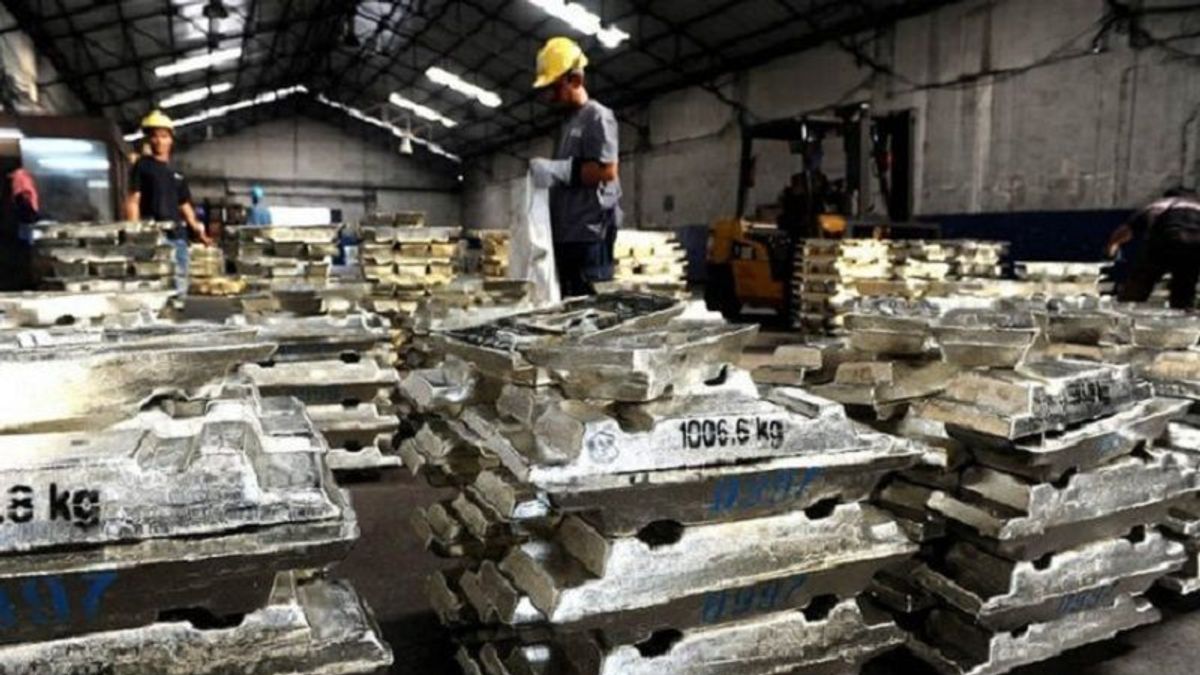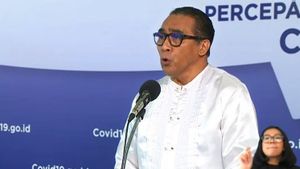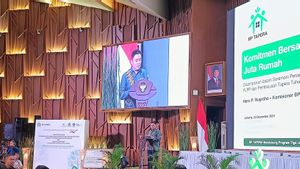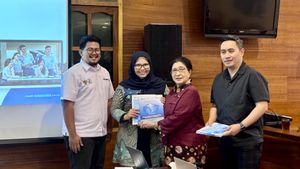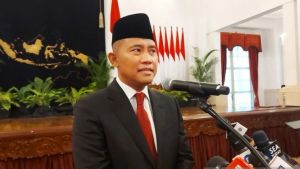JAKARTA - The government's plan to ban the export of bauxite and tin this year is an effort to build mineral downstreaming. For this reason, the Ministry of Energy and Mineral Resources (ESDM) has begun to prepare information and data related to tin in Indonesia.
"Frankly, we are preparing materials for the ESDM minister to convey information and data on what is happening with tin in Indonesia so that later when a decision is made, the best conditions will occur," said the Director General of Mineral and Coal at the Ministry of Energy and Mineral Resources, Ridwan Djamaluddin, in a hearing with Commission VII. DPR RI in Jakarta, Tuesday, June 21.
The best condition, he continued, is a condition in which Indonesia must prepare the domestic tin processing industry in order to make the best use of tin metal. This is because until now only 2 percent of tin is absorbed domestically, while the other 98 percent is exported in the form of tin blocks or inglots.
"So if we really ban exports in the form of ingots, it means we have to prepare a processing industry in massive quantities. We could build the industry or we should build it because since the 70s ingots have been sold and we have never distributed them, only 2 percent. ," he explained.
For this reason, his party is currently intensively discussing and anticipating to prepare the industry and how to attract investors to build a domestic tin downstream industry.
Previously, the Investment Minister/Head of the Investment Coordinating Board (BKPM) Bahlil Lahadalia said the government would ban the export of bauxite and tin this year as an effort to build mineral downstreaming.
In the Road to G20: Investment Forum "Encouraging the Acceleration of Sustainable and Inclusive Investment" Wednesday, May 18, Bahlil said the ban was an interpretation of President Jokowi's directives to build downstream and build industries based on new, renewable and environmentally friendly energy.
"We from the Ministry of Investment have translated the economic transformation through downstreaming with a natural resource management approach. Nickel, we will stop. Bauxite will soon be stopped. In 2022 we will stop bauxite and in late 2022 we will also stop tin exports," he said.
According to Bahlil, the cessation of mineral exports will encourage downstreaming which will provide maximum added value for the country.
The English, Chinese, Japanese, Arabic, and French versions are automatically generated by the AI. So there may still be inaccuracies in translating, please always see Indonesian as our main language. (system supported by DigitalSiber.id)
